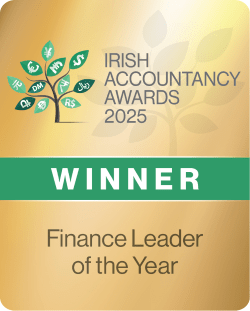Revenue recognition is a critical aspect of financial reporting for any business, but it can be particularly challenging for SaaS companies. The subscription-based model, variable pricing, and complex accounting standards create a unique set of obstacles that can lead to errors, inefficiencies, and even legal issues if not handled correctly.
In this guide, we’ll look at the common revenue recognition challenges faced by SaaS businesses and how a skilled SaaS CFO can help you overcome them. We’ll get into the intricacies of accounting standards like ASC 606 and IFRS 15, discuss the importance of technology and internal controls, and provide actionable insights to ensure your revenue recognition process is accurate, efficient, and compliant.

Revenue Recognition Basics
The rules for recognizing revenue in SaaS businesses differ from traditional companies. Your SaaS CFO needs to handle subscription revenue, usage-based billing, and mixed service elements – often all at once. Understanding these basics helps you avoid common mistakes that can affect your financial reporting.
What Makes SaaS Different
Traditional businesses recognize revenue when they deliver a product. But your SaaS business delivers service continuously. This means you need different approaches to:
- Recording revenue over time
- Handling subscription changes
- Managing service delivery
- Tracking performance obligations
Your CFO helps create systems that track everything correctly from day one.
Let’s look at a typical scenario: You sell annual subscriptions with setup fees and monthly support services. When do you recognize each revenue type? Setup fees might be recognized immediately, while subscription revenue is spread over 12 months. Support services? Those get recognized as you deliver them.
Common Recognition Challenges
The SaaS industry has revolutionized the way businesses operate, offering flexible, subscription-based services that cater to a wide range of needs. However, this innovative model presents unique challenges when it comes to recognizing revenue.
- Complex Accounting Standards: These standards give a complete framework for recognizing revenue, but it can be hard to figure out how to use them with SaaS. Understanding the five-step model, allocating transaction prices, and determining the appropriate timing for revenue recognition requires specialized knowledge and expertise.
- Subscription-Based Revenue: SaaS companies usually operate on a subscription model, where customers pay a recurring fee for access to the service. Recognizing revenue over the lifetime of the subscription, rather than upfront, requires careful accounting and can be impacted by factors like contract length, renewal rates, and potential cancellations.
- Variable Consideration: SaaS pricing often involves variable elements, such as discounts, promotions, or usage-based fees. Accounting for these variable factors can be challenging and requires accurate tracking and forecasting to ensure proper revenue recognition.
- Deferred Revenue: When customers pay upfront for a subscription, the revenue cannot be recognized immediately. Instead, it is deferred and recognized over time as the service is delivered. Managing deferred revenue is crucial for accurate financial reporting and cash flow management.
- Contract Modifications: Changes to contracts, such as upgrades, downgrades, or renewals, can impact revenue recognition. SaaS companies need to have clear policies and procedures in place to handle these modifications and ensure accurate revenue reporting.
- Revenue Leakage: Revenue leakage refers to the loss of revenue due to errors, inefficiencies, or even fraudulent activities. In SaaS, this can occur due to inaccurate billing, inadequate tracking of usage, or failure to recognize revenue for all services provided.
Revenue requirements add another layer of complexity for Irish businesses. These challenges highlight the need for specialized expertise in SaaS revenue recognition.

Your SaaS CFO’s Role
A SaaS CFO is a strategic partner who can help you deal with the complexities of revenue recognition and ensure your business’s financial health with:
- Financial Expertise: A CFO possesses a deep understanding of accounting standards like ASC 606 and IFRS 15. They can interpret these standards in the context of your business and make sure your revenue recognition practices are compliant.
- Strategic Planning: Your CFO can develop and implement comprehensive revenue recognition policies and procedures tailored to your business model, while helping you access every business grant and support available in Ireland to support your growth. They can help you build a strong foundation for managing contracts, pricing, and bills.
- Technology Adoption: Technology plays a vital role in accurate and efficient revenue recognition. Your CFO can guide you in selecting and implementing the right tools, such as accounting software (like Xero) and automated revenue recognition solutions.
- Internal Controls: To avoid revenue recognition errors and fraud, strong internal controls are needed. The integrity of your financial data can be protected by controls that your CFO can help you create and put in place.
- Forecasting and Analysis: To help you make smart business choices, your CFO can give you accurate revenue projections and look at key performance indicators (KPIs). They can also spot trends and possible risks, which lets you deal with problems before they happen.
- Compliance and Audits: A SaaS CFO ensures your revenue recognition practices comply with all applicable regulations. They can also facilitate smooth and successful audits, providing auditors with the necessary documentation and support.
Practical Solutions and Strategy
As a result of their extensive knowledge and experience, SaaS CFOs are well-equipped to handle the difficulties of recognizing revenue. These are some important methods they can use:
- Creating an Effective Revenue Recognition System: For accurate and efficient revenue recognition, you need a clear method. Your CFO can help you set up a system that collects all the important data, handles key tasks, and gives you real-time information about how your business is doing financially.
- Automating Revenue Recognition: Automation can significantly improve the accuracy and efficiency of your revenue recognition process. Your CFO can help you identify areas where automation can be beneficial, such as invoice generation, payment processing, and revenue allocation.
- Ensuring Accurate Data: To reliably recognize revenue, you need to have accurate info. Creating data governance policies and data validation procedures with the help of your CFO will help you make sure your data is clean, consistent, and full.
- Regularly Reviewing and Updating Policies: Accounting standards and regulations are constantly evolving. Your CFO can stay informed of these changes and be sure your revenue recognition policies are always up-to-date.
- Collaborating with Other Departments: Revenue recognition is not only a financial function. Your CFO can work closely with other teams, like sales, marketing, and customer success, to make sure that everyone is on the same page about contracts, prices, and how services are delivered.
By using these strategies, they can assist you in overcoming revenue recognition challenges, improving financial reporting accuracy, and driving business growth.
If you’re looking to optimize your revenue recognition and achieve sustainable growth, our small business accounting team can help. We’ll ensure you’re claiming all your tax credits and reliefs while maintaining proper revenue recognition practices. Contact us today for a free consultation.
FAQ Section
What’s the difference between a regular CFO and a SaaS CFO?
They specialise in subscription business models and understand the unique metrics and challenges of software companies.
When should we hire a SaaS CFO?
Consider hiring a CFO when your revenue recognition becomes complex or when you’re planning significant growth. Usually, this happens when reaching €1-2 million in annual recurring revenue.
What exactly does a SaaS CFO do?
They manage financial strategy and operations for software-as-a-service companies, with special focus on subscription revenue, cash flow, and growth planning.
How does a SaaS CFO help with tax compliance?
They work closely with Revenue requirements to ensure proper revenue recognition timing and maintain documentation for tax purposes.
How can a SaaS CFO help with funding?
They prepare financial projections, manage grant applications, and ensure your books are investor-ready.
How does a SaaS CFO handle annual contracts paid monthly?
They track both payment schedules and revenue recognition separately, ensuring proper accrual accounting.











